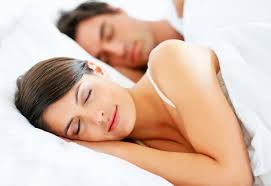It is a hot topic: sleep, or lack thereof. As research continues to pile up confirming the negative impacts of poor sleep on our work, health and mental well-being, we are seeing the technology sector respond. New products, devices and apps have flooded the market, promising to help you get some zzz’s. Here we have compiled a list of the top seven.
The ResMed S+ sits on your bedside table and records light, temperature and sound to help pinpoint whether it is a hot bedroom or a snoring partner that is disturbing you. It also asks you to write about stresses from your day and plays sounds that sync with your breathing, helping you nod off.
The sleep report, which you can print and take to your GP, is surprisingly detailed, showing most people how often they are woken during the night, most likely without even being aware of it.
This is an intelligent bedside clock that connects to a long pad placed under the mattress. When you sleep, it bathes you in red light and plays soothing sounds (or your own Spotify playlist) to help you drift off. When it is time to wake up, it switches to blue light and gentle music when you are in a light sleep phase.
This device is made by Philips and it's called the Wake-Up Light. You set a time that you want to wake up and it will gradually brighten with simulated sunlight. This allows your body to wake up naturally, rather than scaring you awake like most alarms.
The lamp has other features such as playing soothing sounds to help you wake up and of course, it can also be used as a regular lamp. It uses a replaceable halogen bulb.
This device is great for couples where each person has to wake up at a different time. The Lark is a wristband with a built-in clock. You set an alarm time and it vibrates to wake you up. This way, it only wakes up the person wearing the wristband.
The Lark is controlled using your smartphone, and if you get the Lark Pro, it will track your sleep schedule and offer recommendations.
This a smartphone app (paid by subscription, but there is a free 10-day trial) that gives you a beginner’s guide to mindfulness meditation. After the explanatory opening sessions, there are special practices to help reduce anxiety and improve sleep. People say it really works.
For proper insomniacs, there is a more expensive way to try to address the anxiety and depression that may be keeping you awake. The Fisher-Wallace device uses cranial-electrical stimulation , a tiny current that passes between two electrodes that you place on your head twice a day.
It looks ridiculous and takes about two weeks to start having an effect, but this FDA-cleared device is based on Russian research into “electrosleep”. There have been several research studies showing that the current is safe and effective for insomnia . If you have regular insomnia, and don’t care what you look like in bed—this might be for you.
This cloth band fits snugly around your head and contains two tiny speakers connected by Bluetooth to your smartphone or music player. Put your head on the pillow without the discomfort of ungainly headphones, and let some gentle acoustic piano send you to dream world.
And lastly, try turning your phone off or put it on airplane mode when you get in bed. It may be be purely psychological, but something about shutting out the world seems to help me to fall asleep in a flash.
Have a tech product that helps you sleep? Let us know about it in the comments below!
About VTSL
VTSL are specialists in unified communications technology, with a leading hosted VoIP phone system for businesses. Founded in 2007 as one of the only VoIP phone system providers offering guaranteed voice quality, first-rate service and advanced features at a low monthly cost, VTSL has grown year on year, and now serves over 8000 users in the UK & Ireland. For more information on VTSL’s VoIP phone system call 020 7078 3200.

 ed S+
ed S+